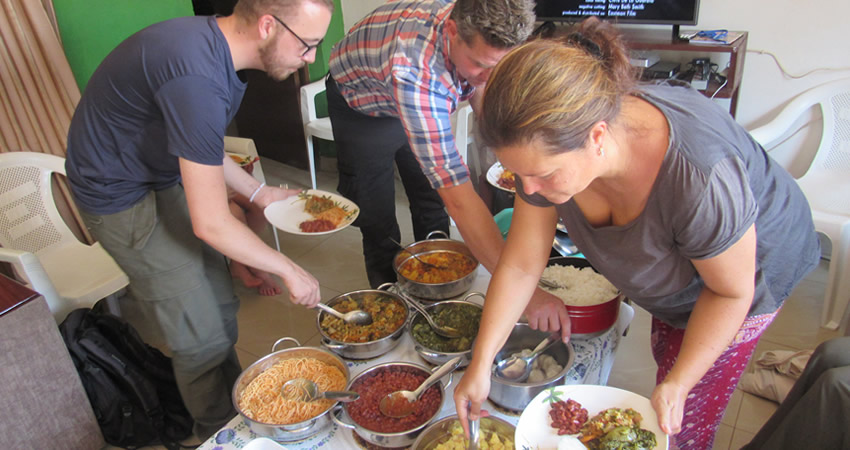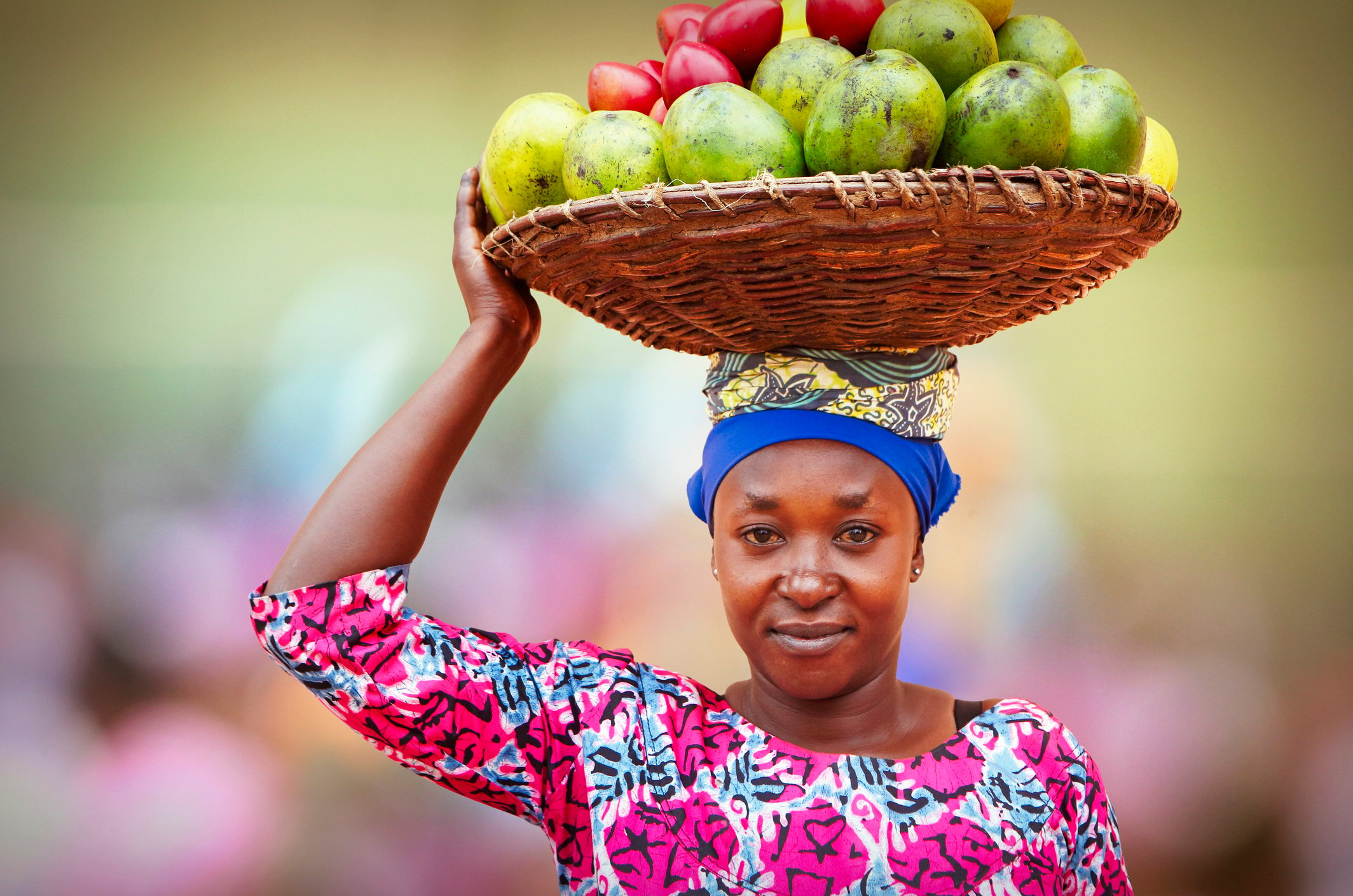
What’s Rwandan culture like?
November 13, 2025
What local crafts can I buy in Rwanda?
November 13, 2025What traditional foods should I try in Rwanda?

What Traditional Foods Should I Try in Rwanda?
Rwanda, a country known for its breathtaking landscapes and rich cultural heritage, also offers one of East Africa’s most comforting and unique culinary experiences. Traditional Rwandan food is shaped by a deep agricultural history, community values, and the connection people have with the land. Meals are simple yet flavorful, prepared with fresh ingredients that reflect Rwanda’s fertile soils and the communal eating traditions that have been passed down through generations. Travelers visiting the Land of a Thousand Hills often find themselves surprised by the variety of hearty dishes, vegetarian-friendly staples, and unique flavors infused into daily Rwandan cuisine. This detailed guide explores the traditional foods every visitor should try when exploring Rwanda, offering insight into the cultural meaning, preparation, and taste of each beloved dish.
The Foundations of Rwandan Cuisine
Rwandan cuisine is rooted in the country’s agricultural identity. Most traditional dishes revolve around locally grown crops such as beans, sweet potatoes, cassava, maize, plantains, and leafy vegetables. Historically, communities practiced subsistence farming, shaping a food culture that values natural ingredients, simple preparation, and nourishment. Meat was traditionally reserved for special occasions or pastoral communities, though today it is widely enjoyed across the country.
While Rwanda’s cuisine is known for its modesty, it is also rich in texture and nutrition. Many dishes are vegetarian or vegan-friendly, making Rwanda an excellent destination for travelers with diverse dietary preferences. At the same time, meat dishes like goat brochettes and grilled tilapia have become important staples in modern Rwandan dining, blending tradition with evolving tastes.
Isombe: A National Favorite
Isombe is one of Rwanda’s most iconic dishes, loved for its earthy flavor and smooth texture. Made from pounded cassava leaves cooked slowly until tender, isombe is often enriched with ground peanuts or peanut butter, creating a creamy, savory taste. The dish is typically served alongside rice, plantains, or sweet potatoes.
Cassava leaves are a central part of Rwandan cuisine because cassava plants grow abundantly across the country, making them both affordable and accessible. Preparing isombe can be a labor-intensive process, especially when pounding the leaves by hand, but the result is one of Rwanda’s most comforting and flavorful traditional foods. With its unique blend of nutty and herbal notes, isombe is a must-try dish that captures the essence of Rwandan home cooking.
Ibihaza: Pumpkin and Beans
Ibihaza is a traditional Rwandan dish made from a blend of pumpkin and beans cooked together to create a hearty, comforting meal. This dish reflects the tradition of combining ingredients for nutritional balance, with beans providing protein and pumpkin offering natural sweetness and vitamins.
The flavor of ibihaza is gentle yet deeply satisfying. The pumpkin softens into a creamy texture, intertwining with the beans to create a dish that feels both nourishing and wholesome. Often enjoyed at family gatherings or as part of daily meals, ibihaza is a wonderful example of Rwanda’s reliance on fresh, local produce and its tradition of preparing meals that are both filling and healthful.
Ubugali: Rwanda’s Staple Dough
Ubugali, also known as ugali in other East African countries, is a simple yet essential dish in Rwanda’s culinary landscape. It is made by slowly stirring cassava flour or maize flour into boiling water until a dense, dough-like consistency is formed. Ubugali is typically eaten by hand, using small pieces to scoop up sauces, vegetables, or stews.
Though mild in flavor, ubugali holds a special place in Rwandan culture because it complements almost every traditional dish. It is especially delicious when paired with isombe, beans, or meat dishes. For visitors, eating ubugali offers a chance to experience a truly authentic staple that reflects the communal and practical nature of Rwandan dining.
Ibirayi: Rwandan-Style Potatoes
Potatoes play a major role in Rwandan cuisine, particularly in the northern regions where the climate is ideal for growing them. Rwandan-style potatoes, known as ibirayi, can be prepared in many ways—fried, stewed, boiled, or roasted. One of the most popular variations is ibirayi bitetse, potatoes cooked with vegetables, onions, and spices to create a soft, savory dish that pairs well with nearly any meal.
In many homes, potatoes are cooked with carrots and green beans in light stews, offering a comforting taste that reflects Rwanda’s farm-to-table culinary identity. Whether served as a main dish or a side, Rwandan-style potatoes are a must-try for travelers who want to taste the daily staples of local life.
Matoke: East Africa’s Beloved Plantain Dish
Plantains, known locally as ibitoke or matoke, are a major component of Rwandan cuisine. These green bananas are boiled or steamed until soft, then mashed or served whole alongside vegetables, beans, or meat. In many homes, matoke is prepared with onion, tomato, and a touch of oil to create a light stew known for its comfort and simplicity.
Matoke has a gentle, slightly sweet flavor that pairs beautifully with savory dishes. Its significance in Rwandan cuisine reflects both cultural traditions and agricultural reliance on plantains, which grow well across Rwanda’s highlands. Trying matoke is essential for anyone who wants a true taste of East African culinary heritage.
Brochettes: Rwanda’s Most Popular Street Food
While many traditional Rwandan dishes are plant-based, brochettes are one of the country’s most beloved meat options. These skewers are typically made from goat, beef, chicken, or fish (usually tilapia), marinated with spices and grilled over open flames. Goat brochettes, known locally as brochettes z’ihene, are especially popular.
Brochettes are commonly enjoyed at local bars, restaurants, and roadside grills, often served with fried plantains (known as ibitoke), chips, or kachumbari salad. The smoky flavor of brochettes and their juicy, tender texture make them a favorite among locals and visitors alike. They offer an exciting contrast to Rwanda’s softer, milder traditional dishes and provide an authentic taste of the country’s social food culture.
Akabenz: Rwandan Pork Delight
Akabenz, a flavorful pork dish, has become a modern cultural favorite in Rwanda. The meat is marinated, simmered, and fried until crispy yet tender, then often served with chips or fried plantains. Though not traditionally part of Rwanda’s historical cuisine, akabenz has become an important part of contemporary Rwandan dining culture, especially in Kigali and regional towns where pork is widely enjoyed.
The name “akabenz” playfully refers to the Mercedes-Benz brand, suggesting the dish is high quality and much-loved. For travelers looking to taste something uniquely Rwandan with a modern twist, akabenz is an excellent choice.
Kachumbari: Fresh and Flavorful Salad
Kachumbari is a refreshing salad made from tomatoes, onions, green peppers, and sometimes fresh herbs like coriander. While common in many East African countries, the Rwandan version is light, crisp, and a wonderful complement to heavier dishes such as brochettes or isombe.
This simple salad highlights Rwanda’s emphasis on fresh ingredients and balanced meals. The combination of vegetables adds brightness to the plate, making it a perfect side dish for travelers who want something fresh and wholesome alongside traditional fare.
Icyayi and Ikivuguto: Rwandan Drinks to Try
Traditional beverages are also an important part of Rwandan food culture. Icyayi, or Rwandan tea, is often served with milk and sugar, offering a comforting drink commonly enjoyed in homes and cafés. Tea farms in the northern regions produce some of the country’s best leaves, giving the drink a smooth and aromatic flavor.
Ikivuguto, a fermented milk drink, holds deep cultural importance. Traditionally consumed by pastoral communities, it is thick, tangy, and refreshing. Ikivuguto is often considered a symbol of hospitality and is offered to guests as a sign of respect and welcome.
Book Your Culinary Journey with Experiya Tour Company
Exploring Rwandan food is an unforgettable part of experiencing the country’s culture, hospitality, and traditions. To truly immerse yourself in Rwanda’s culinary scene—from traditional dishes to vibrant local markets—booking with a knowledgeable tour provider elevates your journey. Experiya Tour Company offers expertly guided cultural experiences that include food tours, local dining recommendations, market visits, and immersive farm-to-table adventures. With their deep understanding of Rwanda’s traditions and cuisine, Experiya ensures your travel experience is rich, authentic, and filled with meaningful encounters. For the best way to taste Rwanda, Experiya Tour Company is your trusted partner in discovery.



